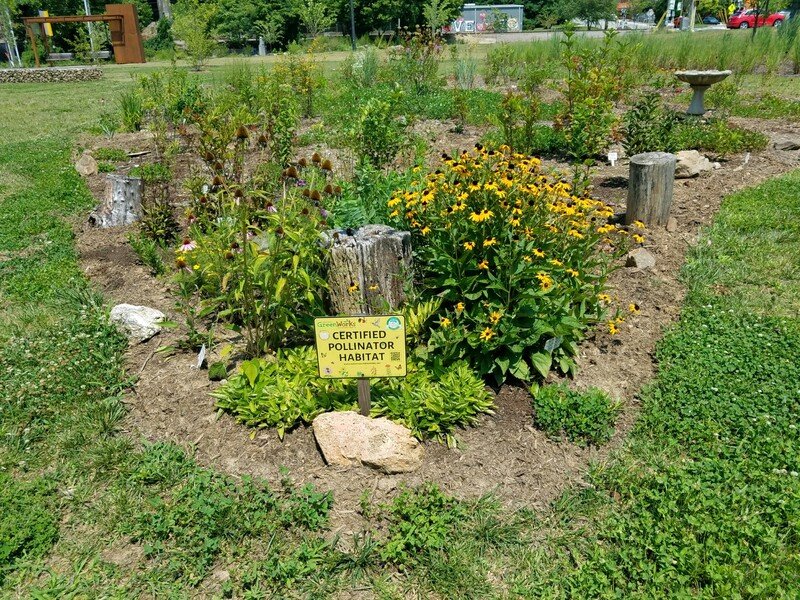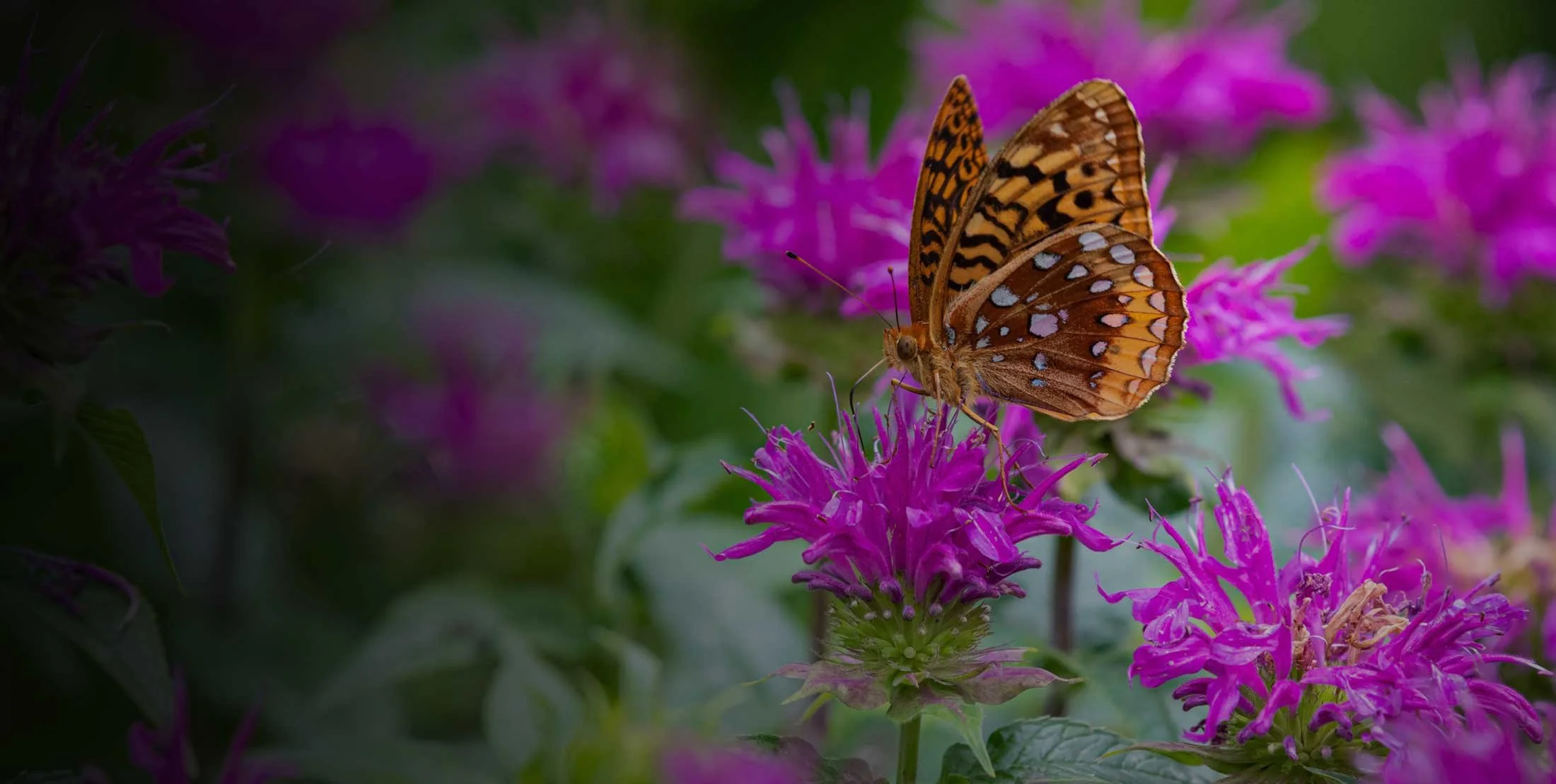
Take Action / Native Pollinators
Preserve Native Pollinators
For native pollinators, good nutrition is the best defense against the pressures of a changing climate.
That’s why we’re planting or certifying as much native pollinator habitat as possible.
Certify Your Garden
Pollinators are under threat, but there’s plenty we can do to help right in our own backyards.
By certifying your garden, you connect to a community of native pollinator guardians like you. You also have the option to purchase a sign to let your neighborhood know that your yard or patio has become a certified pollinator sanctuary. With our certification program, our goal is to create close or connected native pollinator habitat corridors throughout WNC. We’ve already certified more than 150 gardens, and we’re so excited our network of backyard pollinator habitat is growing so fast!
Will your garden be next?
Create Public Pollinator Habitat
This program is intended to assist the development and maintenance of pollinator habitats on city property in the City of Asheville, increasing local food production and providing community benefits. The City welcomes applications from City residents to apply for approval to use currently vacant or underutilized City-owned properties to establish and maintain pollinator habitat.
The Pollinator Habitat Program’s goal is to allow usage of these properties for the cultivation of plants, herbs and flowers that attract and maintain healthy pollinator populations. This initiative is a part of the City’s Asheville Edibles Program and advances the goals of the City’s Food Policy Action Plan.
Inspired to create pollinator habitat on public property?
Each year we host more than a dozen events where residents can learn more about pollinators and the native plants they rely on.
Check out our Events page to see what Bee City-AVL workshops and Pollination Celebration! events are coming up.
See Bee City-AVL Events & Pollination Celebration!
_
Become a Pollenteer
Secure our local food future by caring for the plants that protect native pollinators, and helping your neighbors learn more about the value of native pollinator plants.
Our Pollenteers:
Provide critical practical advice and knowledge about our native pollinators to inform our habitat projects.
Lead educational workshops, informational tabling, and special events to educate your neighbors about pollinators.
Care for the plants in public pollinator gardens and at our pollinator plant bank.
Attend planting days at new and existing gardens.
Lead a community project of your own!
You know those showy exotic flowers from everywhere but here? Unfortunately, they’re starving our native pollinators. But this is such an easy fix!
Check Out Our Native Plant Lists
To most effectively support native pollinators, we need to plant as many native plants as possible. Native plants are species that existed here prior to European colonization, and thus co-evolved with the insects, birds, and animals that pollinate them. By using native plant species, we give native pollinators the best possible chance to survive and thrive under the pressures of a changing climate.
_
What native plants would work best for your circumstances? Let’s find out!
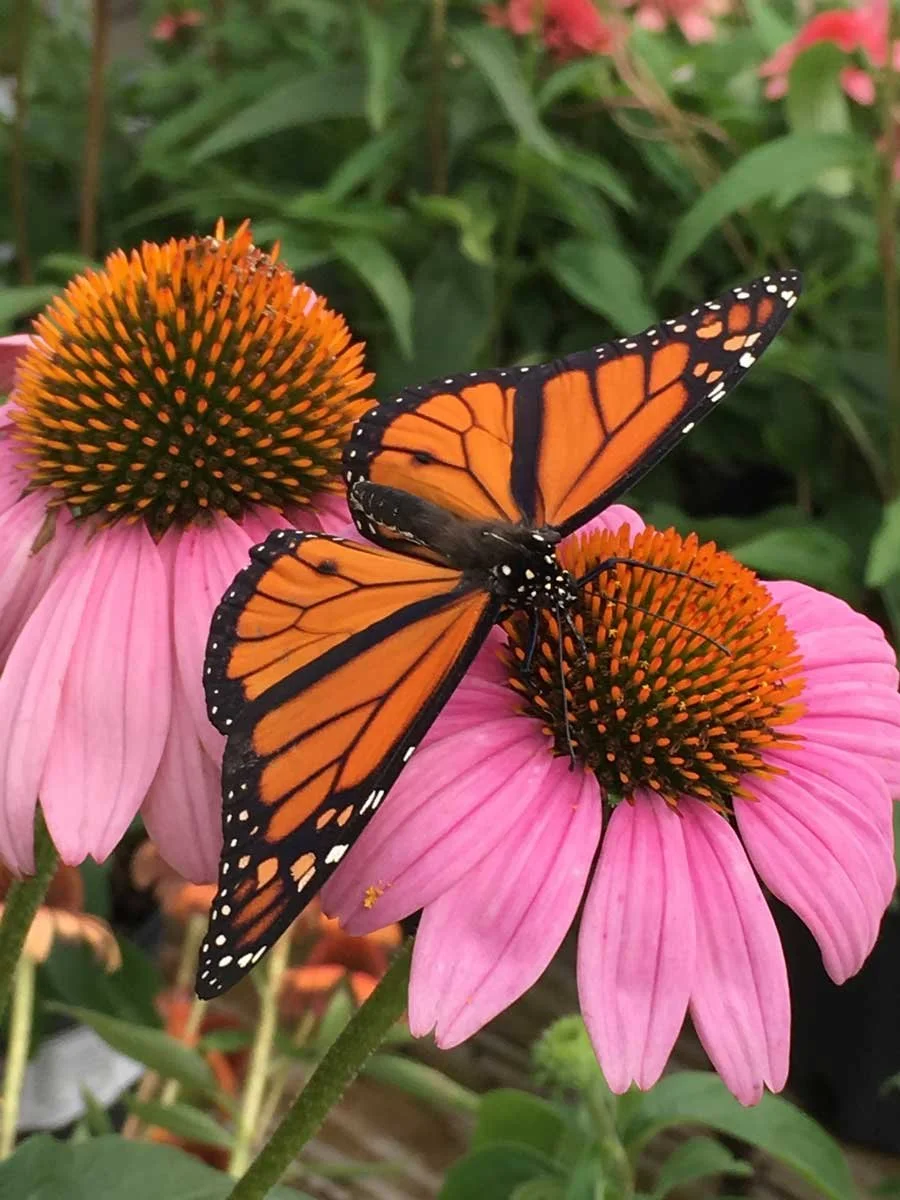

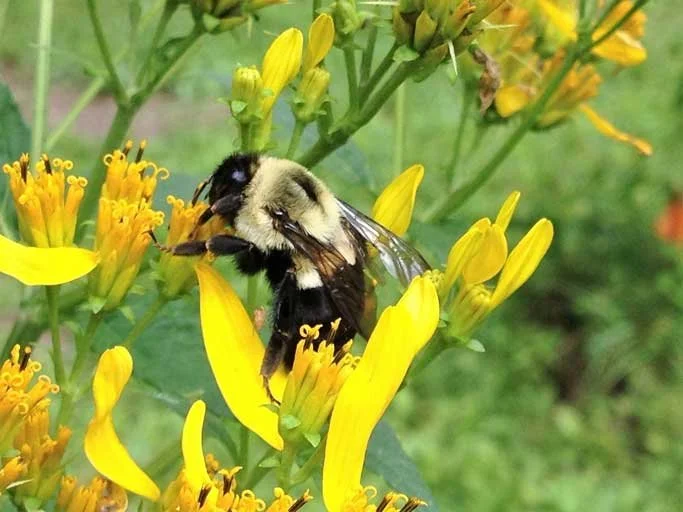
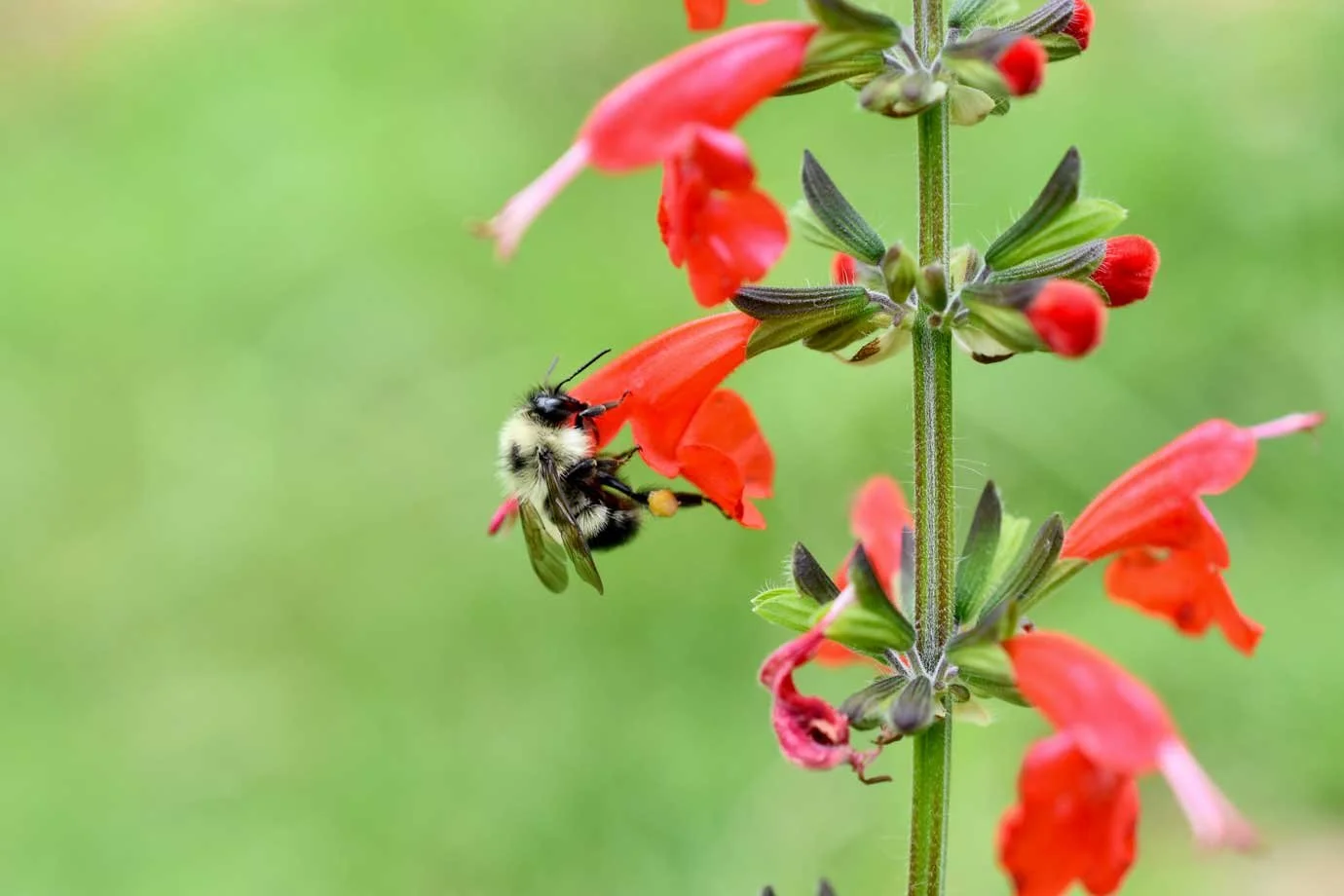


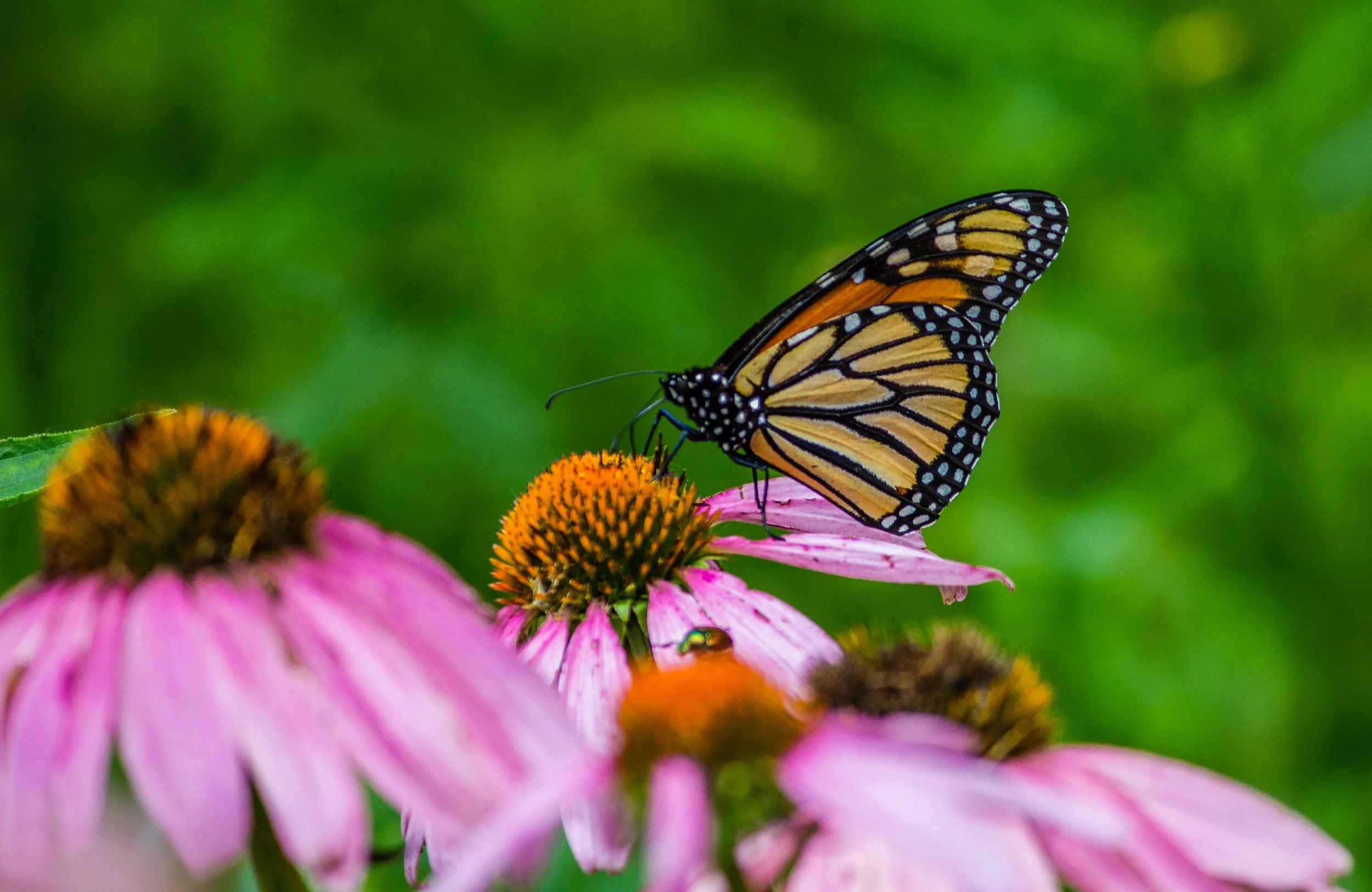

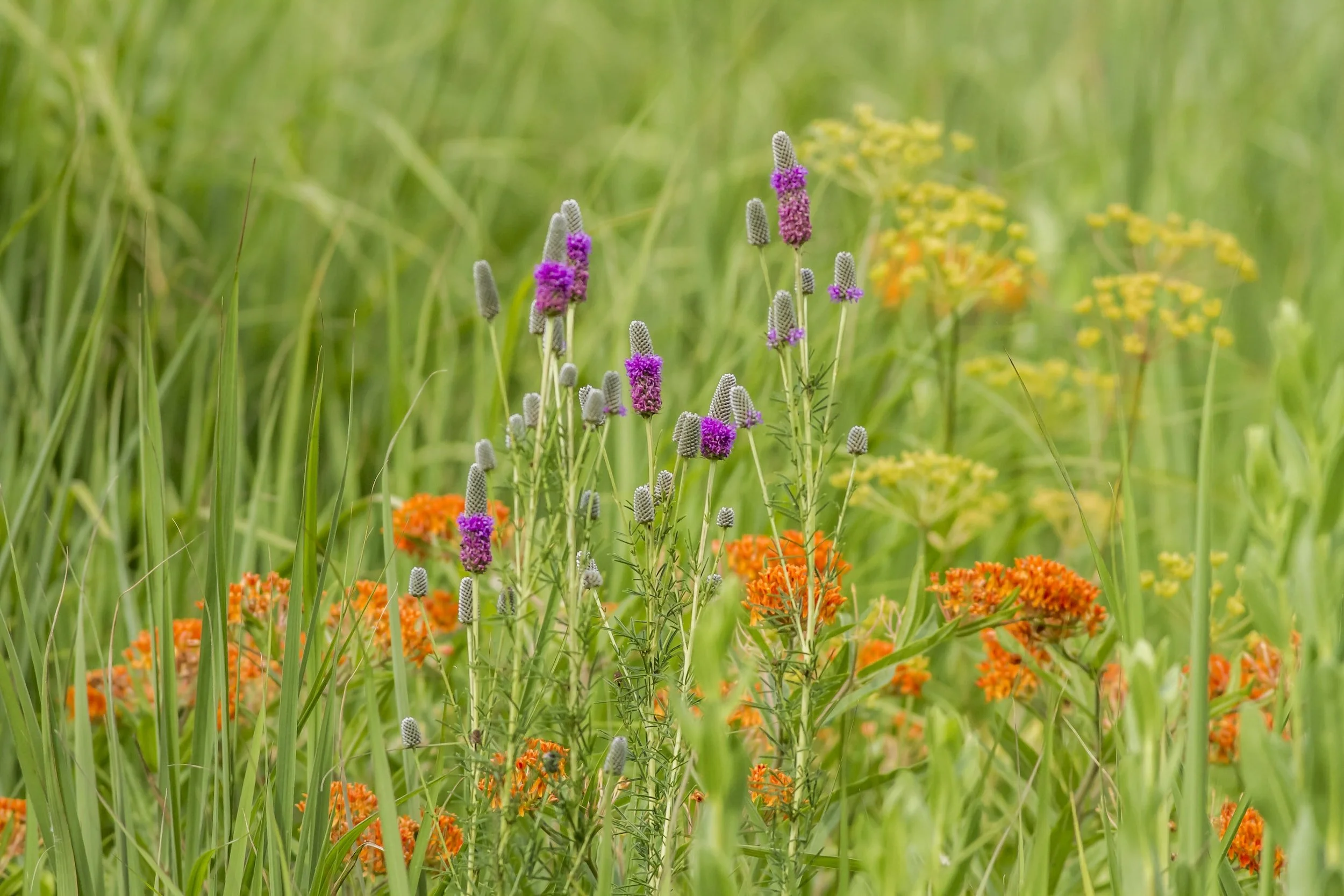


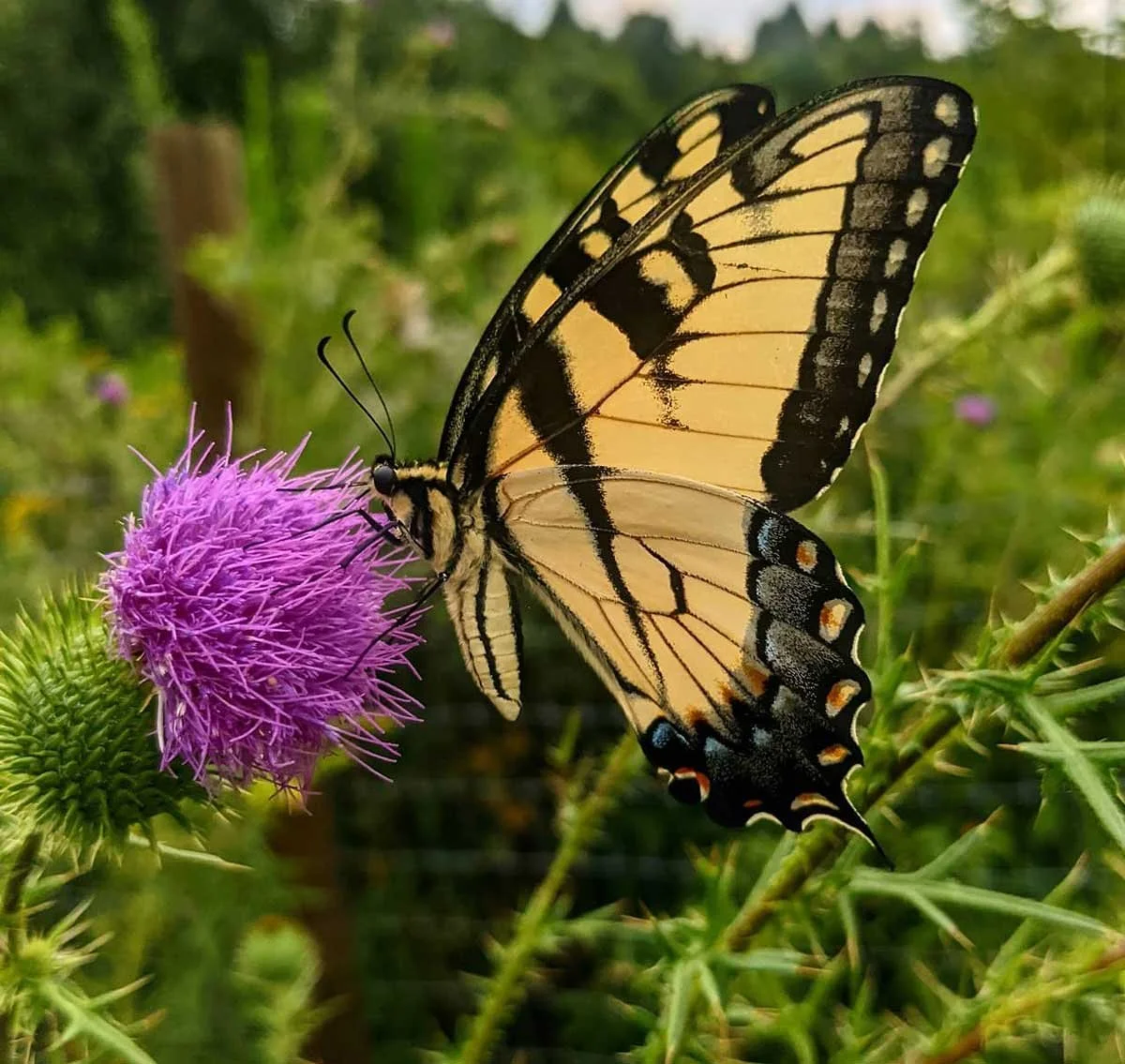
Learn More About Native Pollinators
We love sharing what we know about native pollinators, and there’s always more to know.
Want to find activities and resources to increase your pollinator know-how?

